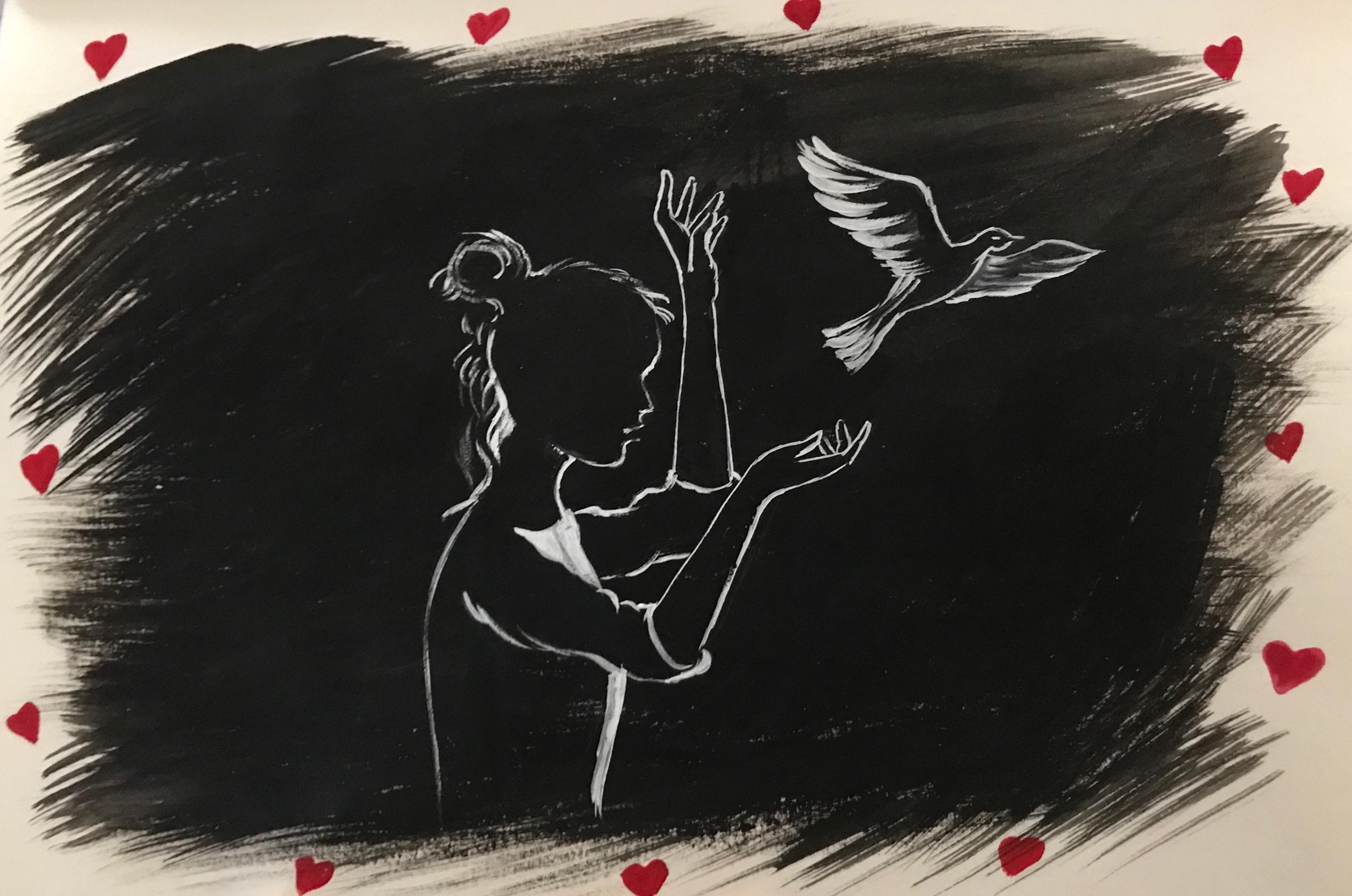Trapped By Views

IMAGE OF THE WEEK
We are grateful to Rupali Bhuva for offering this hand-made painting for this reading.

We recognize that whatever comes up is just a mental formation within the mind, just a thought or just a perception. We can have a perception about something and realize that it's impermanent, unsatisfactory, and not-self. Sometimes we can act on views or perceptions if they have a usefulness at that particular time, but we are not building our home or sense of self within that.
To tie that in again with loving-kindness: it's being very kind to yourself and others because it doesn't take very long to recollect the last time you were at loggerheads with somebody because of a particular view. You think about it afterward and wonder, "Why did I even go there? What was the point of that anyway?"
If we are not trapped by views, usually we can respond quite skillfully, and that is exceedingly useful. Reflect on the sense of non-contention as a basis for loving-kindness. There is an idiom in the scriptural language that describes this mental state of attaching to views: "This alone is true, anything else is wrong." It isn't as if we have consciously thought this out or even articulated it within the mind, but it is there. We can change our views, but at that particular moment it feels like, "This is right and everything else is wrong."
As soon as we are in that kind of position, it's the basis for contention and conflict. It's the basis for feeling irritation and aversion, whether short or protracted. Ill will is going to be attendant on holding that particular view.
Try to make this very conscious through the cultivation of loving-kindness so as not to allow the formation of views to be so strong. Have a sense of loving-kindness and well-wishing towards yourself because you are usually the first person to suffer when you are tightly locked into a particular view. Then, of course, others suffer as well.
The active application of loving-kindness is not just a nice emotion that we are able to generate sometimes while we are sitting on our cushions. It's a very practical application of how we can interface with the world around us and not be trapped by fixed views. It lays the basis for peace and clarity.
We can let go -- we can let go of a mood, irritation, or aversion; we can let go of a view that's starting to arise; we can let go of a particular perspective of how I think it has to be; we can let go of sense desires; and we can let go of the whole construct of "I am." It's that letting go that allows us to access and experience a real peace.
Ajahn Pasanno is the abbott at the Abhayagiri Forest Monastery. Excerpt above from 'Abundant, Exalted, Immeasurable.'
SEED QUESTIONS FOR REFLECTION: How do you relate to the notion that we can let go of a view that's starting to arise? Can you share a personal story of accessing real peace by letting go of your views? What helps you let go of your perspectives?